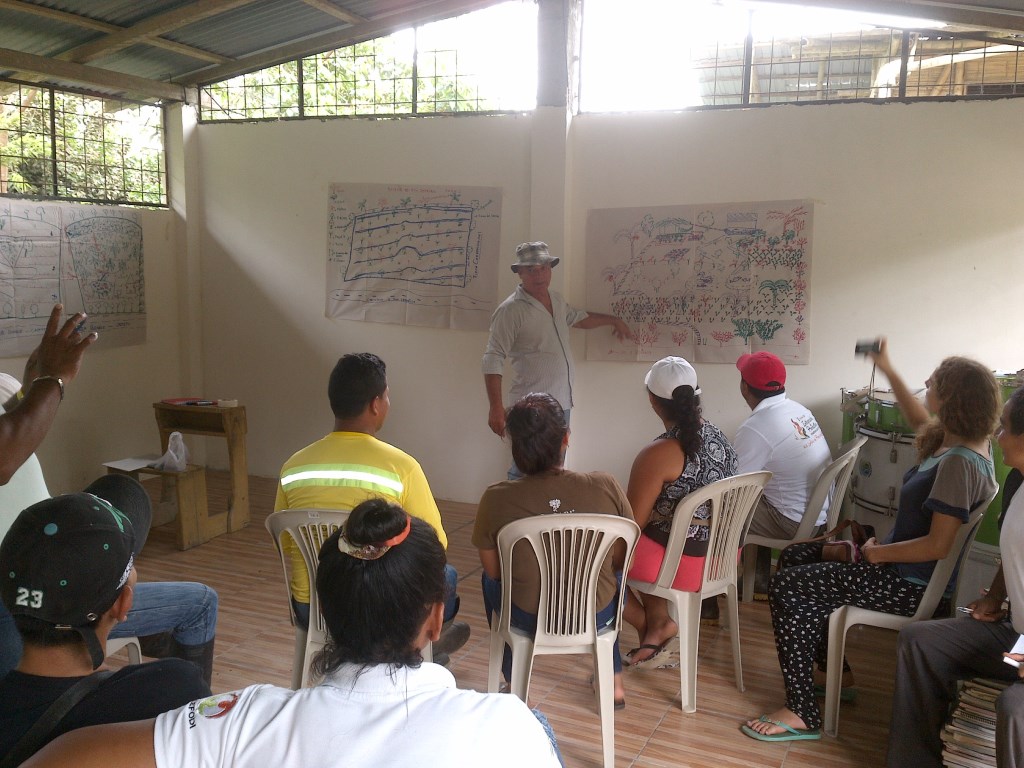An Overview Of Our Solution
- Population Impacted:
- Continent: South America
Organization type
Population impacted
Size of agricultural area
Production quantity
People employed
Describe your solution
Describe your implementation
External connections
What is the environmental or ecological challenge you are targeting with your solution?
Describe the context in which you are operating
Esmeraldas has the largest remnants of rainforest on the Ecuadorian cost, as well as the highest deforestation rate. The main cash crops in the province al African palm, grass (for cattle) and cacao. Most large scale operations are conventional monocultures with a heavy use of pesticides and fertilizers and very poor environmental practices. Small farmers in the province on the other hand are still mostly organic (either by choice and/or by poverty), but they have been working for generations with increasingly unsustainable farming practices, partly due to being displaced to marginal lands with rugged topography and shallow erodible soils and partly due to being misguided by productivity centered mainstream technical support. This has degraded soils and watersheds in farms to a degree where production levels have diminished and environmental problems have arisen. This coupled with the tendency towards monoculture and the increase in the use of agrochemicals makes it imperative to change the way of farming to reverse the ever increasing brittleness of the landscape and to break the cycles of desertification and flooding that are being enhanced by climate change.
How did you impact natural resource use and greenhouse gas emissions?
Language(s)
Social/Community
Water
Food Security/Nutrition
Economic/Sustainable Development
Climate
Sustainability
Funding from Lush Cosmetics (Sustainable Lush Fund) aimed for 4 years, later Lush Cosmetics would buy 100 TM of Regenerative Cacao per year with a prize that would partly co-fund the coop´s technical staff (whose work includes promoting regenerative practices). Grant funding has come to an early stop, this put together with reduction of funding from other NGOs and a poor cacao harvest has driven the initiative into readjustment. Other NGOs supporting the coops (CEFODI and ACRA) will keep a regenerative bias in their productivity focused approach. UOPROCAE´S leaders are looking for ways to get farmers from other first level coops (asides ECO-CACAO) to start implementing regenerative farming to sell their produce with this added value.
Return on investment
Entrant Banner Image

